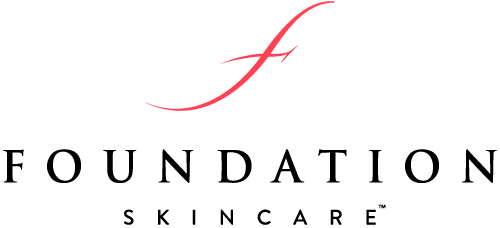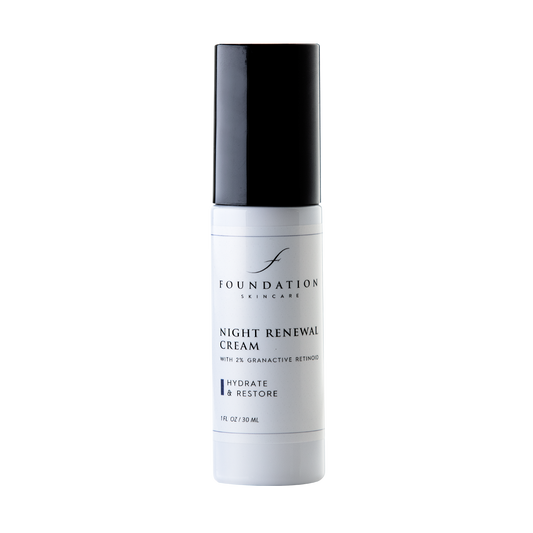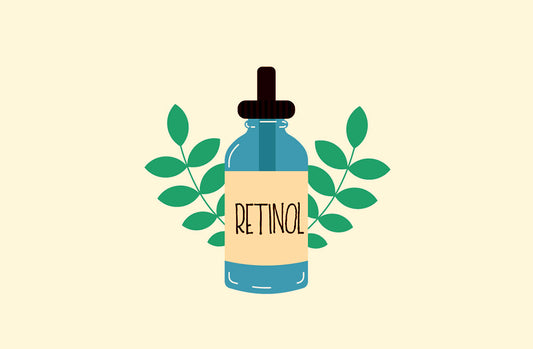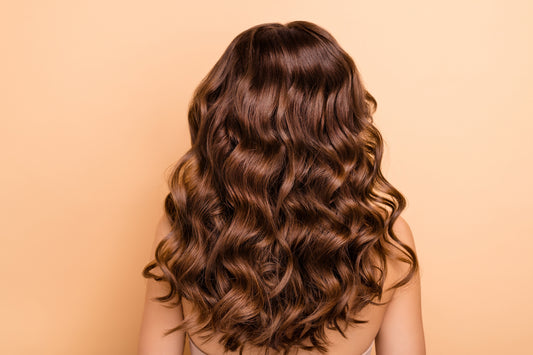Learning how to reverse aging may seem like something straight out of a fairytale. Getting older is a fact of life, but there are ways to slow the visual signs of aging on your skin that can actually make you look older than you are if you have fallen into some poor skincare habits like forgetting to wear sunscreen or using the wrong products, signs like wrinkles, hyperpigmentation, dry skin and more.
Read on to find out why premature aging happens, which lifestyle habits speed it up, and how to prevent wrinkles with non-invasive products.
What Is Aging?
As we age, we experience a variety of physiological changes due to intrinsic and extrinsic factors. Intrinsic aging refers to the natural biological process of aging determined by a person’s genetics. Extrinsic aging is influenced by external factors like air pollution, smoking, drinking, poor nutrition, and sun exposure.
While some signs of aging, like wrinkles and gray hair, are more obvious because we can see them, aging also occurs on a cellular level. Cells are the building blocks of our tissues, and over time, they become larger and less able to divide and multiply.1 Waste products also build up in the tissues, making them more rigid. It also becomes harder for oxygen and other nutrients to help cells and tissues regenerate. Meanwhile, the production of collagen and elastin slow down, resulting in thinner, drier, less supple skin. Fat distribution also changes, decreasing in the face, hands, and feet to make these areas more translucent, and increasing in the thighs, abdomen, and waist.2
At What Age Do Aging Symptoms Start?
According to some dermatologists, estheticians, and other skincare experts, the aging process seems to start around age 29.3 This is when collagen fibers start losing their elasticity. You may start noticing fine lines, sun spots, dry skin, sagging, and hair loss. Although aging is inevitable, certain factors like diet, sun protection, and your skincare routine, can either speed up or slow down the process.
Is It Possible To Reverse The Process Of Aging?
While the Fountain of Youth is a mythical place, some scientists believe age reversal is possible to a certain degree. According to a study published in Cell,4 researchers were able to reverse aging in mice by undoing changes in gene activity. By tweaking genes that transform adult cells back into embryonic-like ones, the researchers were able to extend the life of a mouse with an accelerated-aging condition and successfully promote recovery from an injury in a middle-aged mouse.
Though promising, the study had a critical drawback: When the researchers treated mice continually, some developed tumors and died within a week. Until more research is conducted, especially on humans, most experts agree that finding ways to slow down the process of aging is easier and safer than trying to reverse it altogether.
How To Slow Down Premature Aging
We all age, but premature aging is when it happens too quickly. Many of the contributing factors to premature aging are preventable, ranging from following a poor diet to not drinking enough water. By implementing the following 8 healthy lifestyle factors, you can help stop and prevent further damage from premature aging.
1. Healthy Diets
Following a well-varied, nutritious diet is one of the most important things we can do for our health. According to researchers, your anti-aging diet should consist of plenty of antioxidant-rich fruits and veggies if you hope to combat dull complexions and ward off fine lines.5 Aim to include watercress, which helps to oxygenate the skin, red bell pepper, which may protect against skin damage, and broccoli, which is an anti-inflammatory veggie full of vitamin C. Other key nutrients for aging include:
- Leafy greens like spinach and kale
- Nuts, especially almonds and walnuts
- Avocado
- Sweet potatoes
- Pomegranates
Following a Mediterranean diet has also been shown to slow the process of aging on a cellular level by extending telomeres, compound structures found at the end of our chromosomes.6 This diet is characterized by a high intake of vegetables, fruit, and legumes, olive oil as the main source of fat, fish as the primary source of animal protein, and a variety of whole grains, nuts and seeds.
2. Avoid Smoking
You may already know that smoking is bad for your heart and lungs, but it’s just as bad for your skin. Studies have referred to smoking as an aging accelerator, both directly by triggering inflammatory responses, and indirectly by increasing the likelihood of developing diseases where smoking is a recognized risk factor.7 Smoking is toxic for cells and results in biophysical changes to skin, especially regarding thickness and density. It has been shown that smokers have fewer collagen and elastin fibers in the dermis resulting in skin becoming slack, hardened, and less elastic.
Night Renewal Cream
• Anti-aging defense, moisturizer
• Improves fine lines, skin texture
3. Use a Retinoid
Retinoids, like those found in Foundation Skincare Night Renewal Cream, have been found to reduce fine lines and wrinkles by increasing collagen and stimulating the production of new blood vessels in the skin, which improves skin color. There is also evidence that using retinoids consistently can help fade age spots and soften rough patches of skin.8 It is important to be patient with results, though, which can take three months or longer to appear. Retinoids should always be used with a broad-spectrum, mineral-based sunscreen to protect your skin from UV damage because this product can make your skin more sensitive to the sun.
4. Exercise Regularly
Having a regular exercise routine can help keep skin looking young and healthy by increasing blood flow, which sends oxygen and nutrients to skin cells and helps eliminate toxins. There is also evidence that exercise may turn off the aging process of your chromosomes by lengthening telomeres (like the Mediterranean diet we mentioned above).9 One Canadian study also found that people over the age of 40 who exercised regularly had skin closer in composition to that of 20- and 30-year-olds.10
5. Daily SPF & Moisturizer
Spending too many days in the sun without sun protection can wreak havoc on your skin, exacerbating signs of aging and putting you at risk for developing skin cancer. You should always apply a broad-spectrum, water-resistant sunscreen with an SPF of 30 or higher (we recommend SPF of 50). Broad-spectrum sunscreen provides protection from both UVA and UVB rays, which are equally as harmful for your skin.
Sun damage is also capable of decreasing your skin's ability to lock in moisture by breaking down the natural hyaluronic acid that holds water in your skin, which is why using a moisturizer and hyaluronic acid in the morning and night should be a key component to your skincare routine. You may also want to consider taking a supplement that can further protect your skin from sun damage like Foundation Skincare Spectrum, which helps protect the skin against sun damage and skin cancer and supports skin renewal. Foundation Skincare Pigmentation Defense is another supplement that helps improve visible signs of skin discoloration and pigmentary disorders with a blend of antioxidants, vitamins, and herbs.
If you are already noticing the signs of sunspots or hyperpigmentation, you may want to add Foundation Skincare Azelaic Acid 14% to your routine. This daily essential cream reduces skin inflammation and redness while lightening sun damage, age spots, and other forms of hyperpigmentation. Foundation Skincare Azelaic Acid has the highest concentration of azelaic acid without a prescription, but is gentle enough so it won’t dry out or irritate skin.
6. Prioritize Anti-Aging Skincare Products
Along with a powerful sunscreen and daily moisturizer, other anti-aging skincare products to consider include niacinamide, which enhances DNA repair to improve photodamaged skin and boosts collagen to reduce the appearance of fine lines and wrinkles. Foundation Skincare Niacinamide Lotion 10% also includes hyaluronic acid to hydrate, moisturize, and prevent irritation and has built-in anti-inflammatory properties to protect and treat skin while minimizing the appearance of pores and increasing ceramide production.
Another superstar ingredient is vitamin C, an antioxidant that protects skin cells from harmful free radicals while reducing redness and inflammation. Foundation Skincare Vitamin C 20% combines vitamin C with a hydrating base to moisturize, brighten, and protect your skin without drying or irritation while encouraging collagen production to reduce the appearance of fine lines and wrinkles.
Foundation Skincare Firming Neck Cream is one more product that can provide long-term anti-aging benefits with consistent use. Specifically formulated to treat the delicate skin on your neck and décolletage, the neck cream is enhanced with advanced peptide growth factors and natural moisturizing agents to help lift, strengthen, hydrate and firm loose or sagging skin.
7. Stay Hydrated
Improving your skin’s hydration levels is another way to keep skin healthy and rejuvenated. Drinking the recommended 6-8 glasses a day can improve blood flow in the skin and body and provide your cells and tissues with the nutrients they need, as they are mostly made of water.11 You can help your efforts by incorporating foods high in water to your diet, such as cucumbers, watermelon, and zucchini. Also be sure to limit alcohol and sugary items, which contribute to dehydration and inflammation.
8. Cleanse Gently
When it comes to slowing down the signs of aging on your skin, aim for gentleness. Using heavy-duty exfoliators too often or scrubbing too hard is abrasive on skin, causing chronic inflammation, dehydration, and ultimately accelerates the aging process. Instead, cleanse your skin gently and follow up with a skincare regimen designed to support healthy skin from the inside out.
Key Takeaways
It’s never too late to start taking care of your skin. Press the pause button on aging by investing in clinically-proven ingredients with long-term success in mind in lieu of overhyped fads that promise quick results with little to no proof. Find out more about how to preserve the health of your skin and hair at the FS Journal.
References:
-
https://www.mountsinai.org/health-library/special-topic/aging-changes-in-organs-tissue-cells
-
https://www.ncbi.nlm.nih.gov/pmc/articles/PMC3840548/
-
https://www.byrdie.com/when-does-aging-start-best-skincare-rotuine-antiaging-2014
-
https://www.scientificamerican.com/article/aging-is-reversible-at-least-in-human-cells-and-live-mice/
-
https://www.healthline.com/health/food-nutrition/anti-aging-foods
-
https://www.ncbi.nlm.nih.gov/pmc/articles/PMC7019245/
-
https://www.ncbi.nlm.nih.gov/pmc/articles/PMC2564903/
-
https://www.health.harvard.edu/staying-healthy/do-retinoids-really-reduce-wrinkles
-
https://time.com/4426572/exercise-dna-telomeres/
-
https://dailynews.mcmaster.ca/articles/why-the-fountain-of-youth-might-taste-very-salty/
-
https://www.everydayhealth.com/healthy-skin/can-you-hydrate-your-way-to-healthy-skin/





